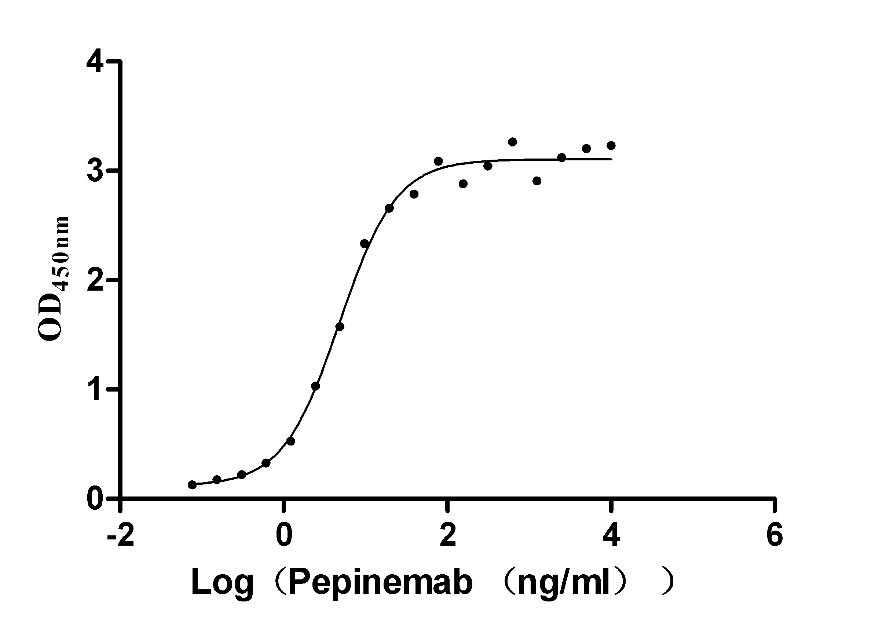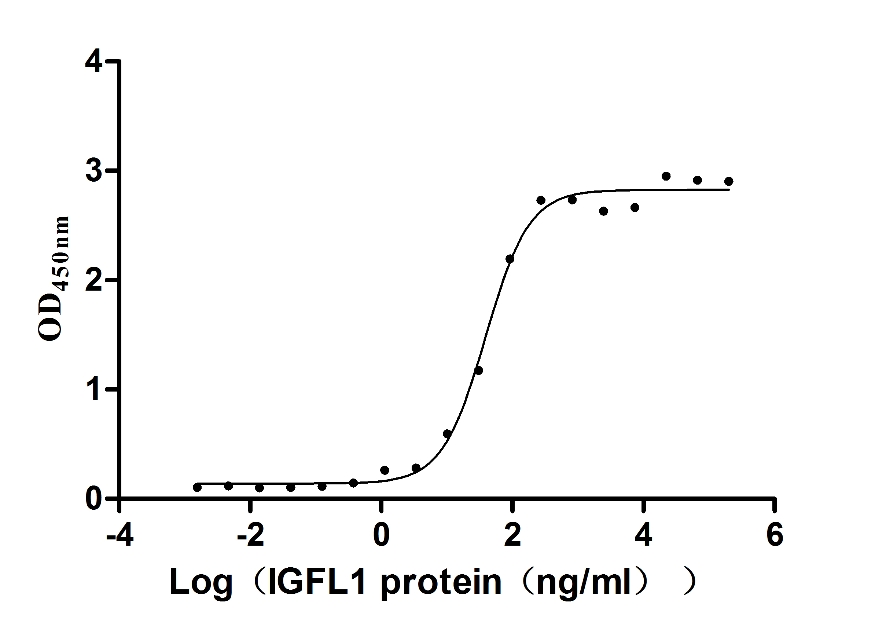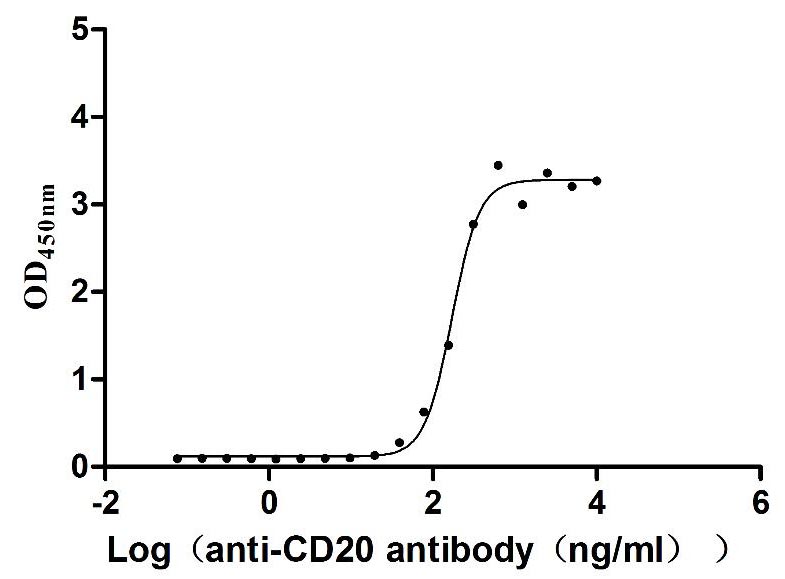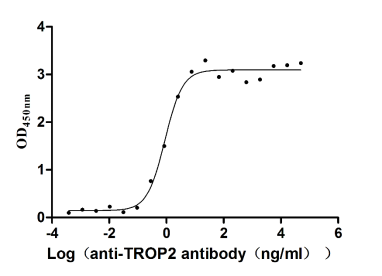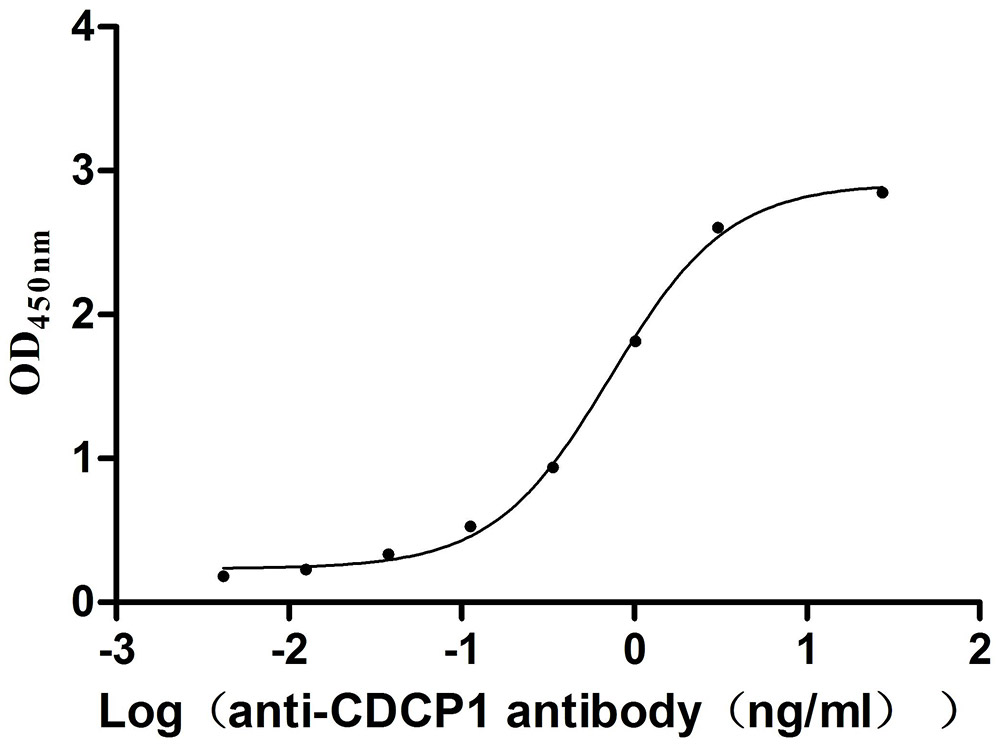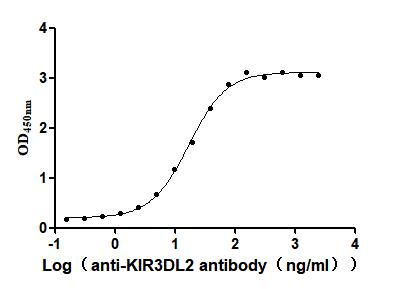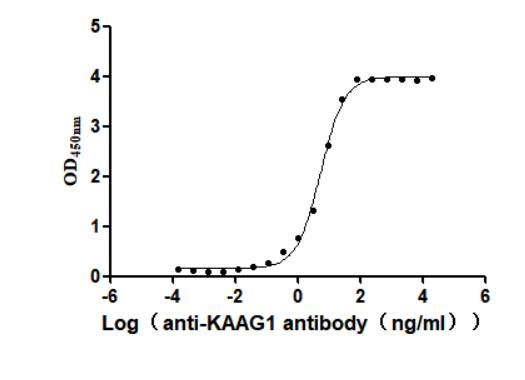Recombinant Human E3 ubiquitin-protein ligase NHLRC1 (NHLRC1)
-
货号:CSB-YP740936HU
-
规格:
-
来源:Yeast
-
其他:
-
货号:CSB-EP740936HU
-
规格:
-
来源:E.coli
-
其他:
-
货号:CSB-EP740936HU-B
-
规格:
-
来源:E.coli
-
共轭:Avi-tag Biotinylated
E. coli biotin ligase (BirA) is highly specific in covalently attaching biotin to the 15 amino acid AviTag peptide. This recombinant protein was biotinylated in vivo by AviTag-BirA technology, which method is BriA catalyzes amide linkage between the biotin and the specific lysine of the AviTag.
-
其他:
-
货号:CSB-BP740936HU
-
规格:
-
来源:Baculovirus
-
其他:
-
货号:CSB-MP740936HU
-
规格:
-
来源:Mammalian cell
-
其他:
产品详情
-
纯度:>85% (SDS-PAGE)
-
基因名:
-
Uniprot No.:
-
别名:bA204B7.2; E3 ubiquitin-protein ligase NHLRC1; EPM2A; EPM2B; EPM2B gene; Malin; MGC119262; MGC119264; MGC119265; NHL repeat containing 1; NHL repeat containing E3 ubiquitin protein ligase 1; NHL repeat containing protein 1; NHL repeat-containing protein 1; NHL repeat-containing protein 1 gene; NHLC1_HUMAN; NHLRC 1; Nhlrc1
-
种属:Homo sapiens (Human)
-
蛋白长度:full length protein
-
表达区域:1-395
-
氨基酸序列MAAEASESGP ALHELMREAE ISLLECKVCF EKFGHRQQRR PRNLSCGHVV CLACVAALAH PRTLALECPF CRRACRGCDT SDCLPVLHLI ELLGSALRQS PAAHRAAPSA PGALTCHHTF GGWGTLVNPT GLALCPKTGR VVVVHDGRRR VKIFDSGGGC AHQFGEKGDA AQDIRYPVDV TITNDCHVVV TDAGDRSIKV FDFFGQIKLV IGGQFSLPWG VETTPQNGIV VTDAEAGSLH LLDVDFAEGV LRRTERLQAH LCNPRGVAVS WLTGAIAVLE HPLALGTGVC STRVKVFSSS MQLVGQVDTF GLSLYFPSKI TASAVTFDHQ GNVIVADTSG PAILCLGKPE EFPVPKPMVT HGLSHPVALT FTKENSLLVL DTASHSIKVY KVDWG
-
蛋白标签:Tag type will be determined during the manufacturing process.
The tag type will be determined during production process. If you have specified tag type, please tell us and we will develop the specified tag preferentially. -
产品提供形式:Lyophilized powder
Note: We will preferentially ship the format that we have in stock, however, if you have any special requirement for the format, please remark your requirement when placing the order, we will prepare according to your demand. -
复溶:We recommend that this vial be briefly centrifuged prior to opening to bring the contents to the bottom. Please reconstitute protein in deionized sterile water to a concentration of 0.1-1.0 mg/mL.We recommend to add 5-50% of glycerol (final concentration) and aliquot for long-term storage at -20℃/-80℃. Our default final concentration of glycerol is 50%. Customers could use it as reference.
-
储存条件:Store at -20°C/-80°C upon receipt, aliquoting is necessary for mutiple use. Avoid repeated freeze-thaw cycles.
-
保质期:The shelf life is related to many factors, storage state, buffer ingredients, storage temperature and the stability of the protein itself.
Generally, the shelf life of liquid form is 6 months at -20°C/-80°C. The shelf life of lyophilized form is 12 months at -20°C/-80°C. -
货期:Delivery time may differ from different purchasing way or location, please kindly consult your local distributors for specific delivery time.Note: All of our proteins are default shipped with normal blue ice packs, if you request to ship with dry ice, please communicate with us in advance and extra fees will be charged.
-
注意事项:Repeated freezing and thawing is not recommended. Store working aliquots at 4°C for up to one week.
-
Datasheet :Please contact us to get it.
相关产品
靶点详情
-
功能:E3 ubiquitin-protein ligase. Together with the phosphatase EPM2A/laforin, appears to be involved in the clearance of toxic polyglucosan and protein aggregates via multiple pathways. In complex with EPM2A/laforin and HSP70, suppresses the cellular toxicity of misfolded proteins by promoting their degradation through the ubiquitin-proteasome system (UPS). Ubiquitinates the glycogen-targeting protein phosphatase subunits PPP1R3C/PTG and PPP1R3D in a laforin-dependent manner and targets them for proteasome-dependent degradation, thus decreasing glycogen accumulation. Polyubiquitinates EPM2A/laforin and ubiquitinates AGL and targets them for proteasome-dependent degradation. Also promotes proteasome-independent protein degradation through the macroautophagy pathway.
-
基因功能参考文献:
- Malin promotes its own degradation via auto-ubiquitination.Malin preferentially degrades the phosphatase-inactive laforin monomer. PMID: 26648032
- laforin/malin complex is able to interact with and ubiquitinate both PKM1 and PKM2 PMID: 26493215
- Lafora disease proteins laforin and malin negatively regulate the HIPK2-p53 cell death pathway. PMID: 26102034
- This study demonistrated that NHLRC1 mutations were detected in some case of Mild Lafora disease patients. PMID: 25270369
- Without functional laforin-malin complex assembled on polyglucosan bodies, polyglucosan is not degraded. PMID: 24068615
- Malin regulates the recruitment of mRNA-decapping enzyme 1A (Dcp1a) to processing bodies. PMID: 23131811
- Malin forms a functional complex with laforin. This complex promotes the ubiquitination of proteins involved in glycogen metabolism and misregulation of pathways involved in this process results in Lafora body formation. (Review) PMID: 22815132
- This study identified that NHLRC1 gene mutations leading to Lafora disease in six Turkish families. PMID: 22047982
- Our results indicate that malin regulates Wnt signaling pathway through the degradation of dishevelled2 and suggest possible deregulation of Wnt signaling in Lafora disease. PMID: 22223637
- Mutations in the NHL repeat containing 1 (NHLRC1) gene are described in association with a more benign clinical course and later age of death in an adolescent patient. PMID: 21555062
- Laforin and malin are defective in Lafora disease (LD), a neurodegenerative disorder associated with epileptic seizures PMID: 21652633
- malin(C46Y), malin(P69A), malin(D146N), and malin(L261P) mutants failed to downregulate the level of R5/PTG, a regulatory subunit of protein phosphatase 1 involved in glycogen synthesis. PMID: 21505799
- malin negatively regulates neuronatin and its loss of function in Lafora disease results in increased accumulation of neuronatin PMID: 21742036
- Malin is related to TRIM32 at both the phylogenetic and functional level. PMID: 21798009
- study described several novel mutations of EPM2A and NHLRC1 and brought additional data to genetic epidemiology of Lafora disease (LD); emphasized the high mutation rate in patients with classical LD as well as the high negativity rate of skin biopsy PMID: 20738377
- These results suggest that the modification introduced by the laforin-malin complex could affect the subcellular distribution of AMPK beta subunits. PMID: 20534808
- the co-chaperone carboxyl terminus of the Hsc70-interacting protein (CHIP) stabilizes malin by modulating the activity of Hsp70. PMID: 19892702
- Laforin and malin colocalize to the ER, suggesting they operate in a related pathway protecting against polyglucosan accumulation and epilepsy PMID: 12958597
- Genetic allelic heterogeneity is present in Lafora disease associated with mutations in EPM2B. Patients with mutations in EPM2A and EPM2B express similar clinical manifestation. PMID: 15781812
- Malin is an E3 ubiquitin ligase that ubiquitinates and promotes the degradation of laforin. PMID: 15930137
- Malin is an E3 ubiquitin ligase that binds glycogen synthase. PMID: 16115820
- Patients with NHLRC1 mutations have a slower rate of disease progression than those with EPM2A mutations. PMID: 16950819
- Defects in malin may lead to increased levels of misfolded and/or target proteins, which may eventually affect the physiological processes of the neuron, and likely to be the primary trigger in the physiopathology of lafora disease. PMID: 17337485
- Regulation of glycogen synthesis by the laforin-malin complex is modulated by the AMP-activated protein kinase complex pathway. PMID: 18029386
- malin ubiquitinates PTG in a laforin-dependent manner, both in vivo and in vitro, and targets PTG for proteasome-dependent degradation. These results suggest an additional mechanism, involving laforin and malin, in regulating glycogen metabolism PMID: 18070875
- The s identified 14 Lafora epilepsy patients in the genetic isolate of tribal Oman. The s show that in this homogeneous environment and gene pool, the same mutation, EPM2B-c.468-469delAG, results in highly uniform ages of onset and death. PMID: 18263761
- Results suggest that the altered subcellular localization of mutant proteins of the EPM2A and NHLRC1 genes could be one of the molecular bases of the Lafora disease phenotype. PMID: 18311786
- Laforin and malin interact with misfolded proteins and promote their degradation through the ubiquitin-proteasome system. PMID: 19036738
- phosphorylation of R5/PTG at Ser-8 by AMPK accelerates its laforin/malin-dependent ubiquitination and subsequent proteasomal degradation, which results in a decrease of its glycogenic activity. PMID: 19171932
- Results describe a novel homozygous single-nucleotide variant in the NHLRC1 gene in a Malian consanguineous family. PMID: 19322595
- laforin and malin play a role protecting cells from ER-stress, likely contributing to the elimination of unfolded proteins PMID: 19529779
- Meta-analysis of gene-disease association. (HuGE Navigator) PMID: 19267391
- The phosphatase laforin acts as a scaffold that allows malin to ubiquitinate protein targeting to glycogen (PTG). These results suggest an additional mechanism, involving laforin and malin, in regulating glycogen metabolism. PMID: 18070875
显示更多
收起更多
-
相关疾病:Epilepsy, progressive myoclonic 2 (EPM2)
-
亚细胞定位:Endoplasmic reticulum. Nucleus. Note=Localizes at the endoplasmic reticulum and, to a lesser extent, in the nucleus.
-
组织特异性:Expressed in brain, cerebellum, spinal cord, medulla, heart, liver, skeletal muscle and pancreas.
-
数据库链接:
HGNC: 21576
OMIM: 254780
KEGG: hsa:378884
STRING: 9606.ENSP00000345464
UniGene: Hs.348351
Most popular with customers
-
Recombinant Human Semaphorin-4D (SEMA4D), partial (Active)
Express system: Mammalian cell
Species: Homo sapiens (Human)
-
Recombinant Human Insulin growth factor-like family member 1 (IGFL1) (Active)
Express system: Mammalian cell
Species: Homo sapiens (Human)
-
Recombinant Dog B-lymphocyte antigen CD20 (MS4A1)-VLPs (Active)
Express system: Mammalian cell
Species: Canis lupus familiaris (Dog) (Canis familiaris)
-
Recombinant Human Tumor-associated calcium signal transducer 2 (TACSTD2), partial (Active)
Express system: Mammalian cell
Species: Homo sapiens (Human)
-
Recombinant Mouse CUB domain-containing protein 1 (Cdcp1), partial (Active)
Express system: Mammalian cell
Species: Mus musculus (Mouse)
-
Recombinant Human Killer cell immunoglobulin-like receptor 3DL2 (KIR3DL2), partial (Active)
Express system: Mammalian cell
Species: Homo sapiens (Human)
-
Recombinant Macaca fascicularis Transmembrane 4 L6 family member 1 (TM4SF1)-VLPs (Active)
Express system: Mammalian cell
Species: Macaca fascicularis (Crab-eating macaque) (Cynomolgus monkey)
-
Recombinant Human Kidney-associated antigen 1(KAAG1) (Active)
Express system: Baculovirus
Species: Homo sapiens (Human)


